Diane Neal Agrees with John Oliver’s Criticism of Law & Order as ‘Copaganda’ and Calls for More Truthful Storytelling
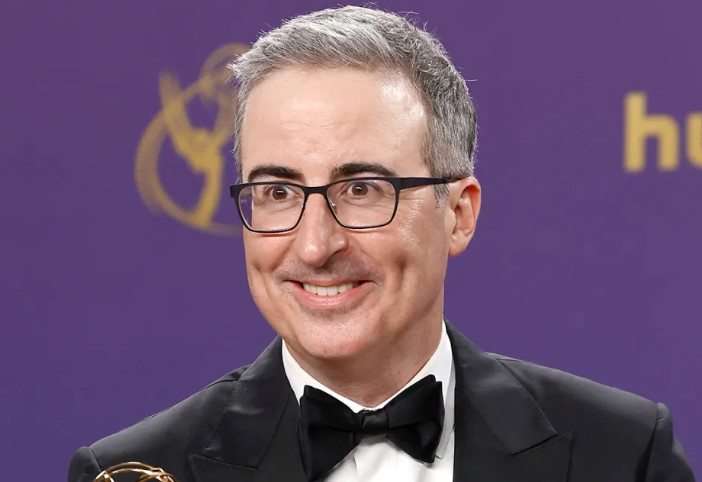
John Oliver recently criticized Law & Order and its creator, Dick Wolf, for portraying an overly idealized and unrealistic image of the police force, accusing the franchise of “hero-washing” law enforcement. One former Law & Order: SVU star, Diane Neal, publicly agreed with Oliver’s remarks, acknowledging the show’s role in promoting “copaganda.”
Oliver’s critique, aired on Last Week Tonight, highlighted how Law & Order depicts police officers as highly competent and justice-driven, a portrayal far removed from the reality of how law enforcement often operates. Neal, who played ADA Casey Novak on SVU from seasons 5 to 9, admitted that while the show is “spectacular,” it fails to reflect the harsh realities faced by crime victims, who are often treated poorly in real life.
Diane Neal Supports John Oliver’s Critique of Law & Order: SVU
In response to Oliver’s segment, Neal took to Twitter to share her thoughts, agreeing with his assessment of the show’s unrealistic portrayal of law enforcement. She acknowledged that SVU often presents a polished and idealized version of the justice system, which rarely aligns with real-world experiences. Neal noted that while the show strives to be empathetic and has inspired advocacy efforts by stars like Mariska Hargitay and Stephanie March, it still perpetuates a false narrative about the effectiveness of the system.
Neal expressed hope that future seasons of SVU would focus on telling more truthful stories, emphasizing the importance of setting realistic expectations for viewers. She argued that while the show has good intentions, it’s crucial to acknowledge the flaws in the justice system and work toward improving it. Neal’s tweets reflected her belief that SVU could evolve into a more honest portrayal of law enforcement and its impact on victims.
Real life is nuanced, and several things can be true at the same time. @LastWeekTonight and @iamjohnoliver brought attention to what has been a reality for many victims, including ME-the chasm between how we BELIEVE #lawenforcement should function, and how it often does not.
— Diane Neal (@DianeNeal) September 17, 2022
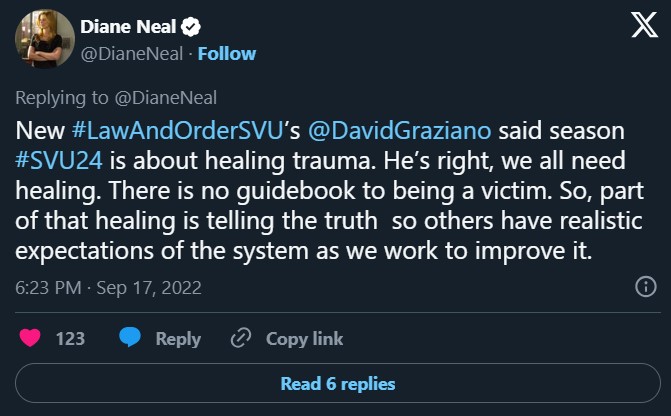
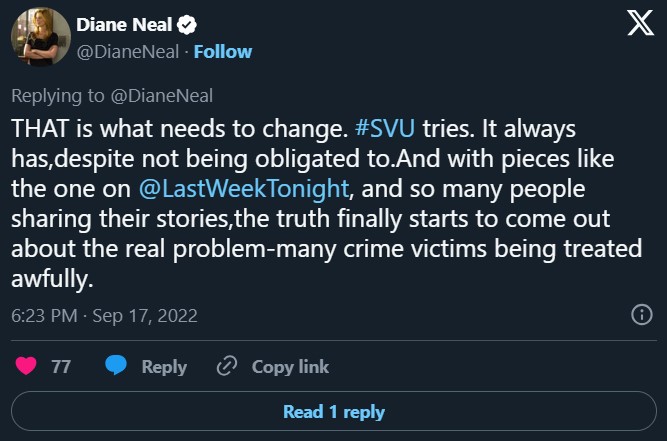
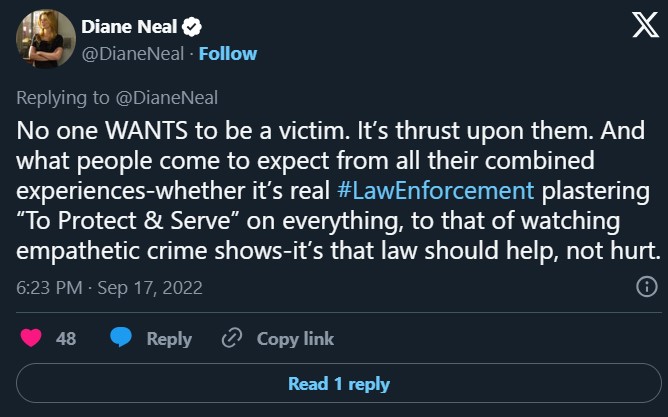
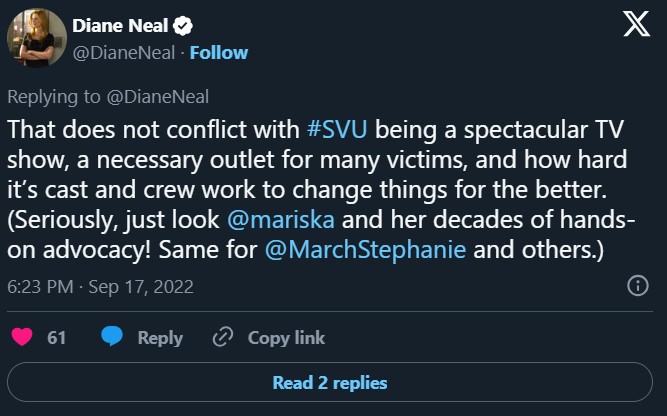
John Oliver Criticizes Dick Wolf’s Vision for Law & Order
During his segment, John Oliver placed much of the blame for Law & Order’s unrealistic portrayal of police on its creator, Dick Wolf. Oliver explained that Wolf had a close relationship with the NYPD, even consulting with officers to shape the show’s narrative. This collaboration, Oliver argued, led to a distorted depiction of law enforcement, presenting a “propagandized, hero-washed version of the truth.”
One of Oliver’s key criticisms was the show’s inflated crime-solving rate, which is far higher than real-world statistics. He also pointed out that the series often portrays defendants as white, older, and middle- or upper-class, avoiding the reality of systemic racism and the disproportionate targeting of people of color. Oliver noted that Wolf deliberately avoided addressing these issues, claiming they were not “on-brand” for the show.
Oliver also referenced an old interview in which Wolf dismissed the idea of covering real-life cases like that of Abner Louima, a Black man who was brutally assaulted by NYPD officers. Wolf described such incidents as the actions of “one or two bad apples” in a large police force, a statement Oliver criticized as minimizing systemic issues within law enforcement.
Neal and Oliver Call for Change in Law & Order
Diane Neal’s reflections align with Oliver’s call for a more honest portrayal of law enforcement in Law & Order. While Neal praised the show’s efforts to inspire empathy and advocacy, she acknowledged that its depiction of the justice system often sets unrealistic expectations for viewers. Both Neal and Oliver emphasized the need for the franchise to move away from its sanitized portrayal of police and address the flaws and systemic issues within law enforcement.
Despite these criticisms, Law & Order continues to maintain its formula of presenting competent, justice-driven cops, prioritizing entertainment and ratings over realism. As Oliver quipped, the show functions as a “commercial for police recruitment,” albeit one that advertises a “defective product.”